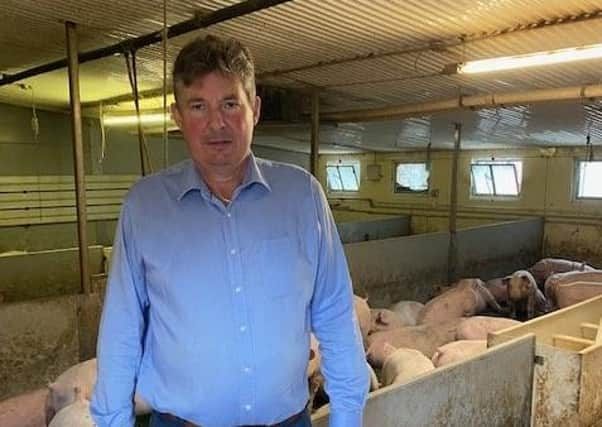Christmas ham and pork availability won’t be same as normal years despite u-turn on migrant worker visas, says leading Co Down farmer


It comes after warnings that up to 150,000 pigs could be destroyed as waste as the labour shortage in meat processing has led to a backlog of animals ready for slaughter.
Measures announced by the Government on Thursday include up to 800 visas for butchers to come to the UK for up to six months. Under the plans, there will also be funding for additional meat storage, moves to introduce processing of animals on Saturdays and the potential for longer working hours.
Advertisement
Hide AdAdvertisement
Hide AdHowever there is no clarity yet about what specifically the news will mean for NI, where there are 350 pig farmers and the abattoirs are reporting a shortfall in some 300 workers. A combination of Covid lockdown and Brexit has seen many migrant workers return home, leaving pigs backing up on farms. UK citizens have little interest in the jobs.
Kilkeel pig farmer Trevor Shields told the News Letter: “Well it is good news but we still don’t know when it is going to happen for Northern Ireland. England had a backlog of 120,000 pigs last week.”
Despite being a chairman of the Pro Pork Producers group, representing 40 farmers, he has not heard any details of how NI may benefit.
He agreed that a major hurdle had been crossed, in that the government has now relented in principle on the need to bring in foreign workers to help, something it was refusing to do.
Advertisement
Hide AdAdvertisement
Hide Ad“Absolutely. Hopefully they can go ahead now and get the problem addressed. If they can bring in 800 workers they can bring in more if need be.”
“I was quietly happy when I heard the news. But the sad thing is that we had to put so much pressure on. They could have done this a few weeks ago and it would have alleviated the problem a lot sooner.”
However it is probably too late to avert some impact on the Christmas market.
“Animals being processed now will be for the Christmas market and that hasn’t happened so there certainly won’t be the availability of normal years.”
Advertisement
Hide AdAdvertisement
Hide AdUFU deputy president William Irvine said: “After a long period of intense lobbying by the UFU, we are glad that finally, some positive progression has been made on the issue of labour shortages. Processors across Northern Ireland have been seriously understaffed for quite some time now and this has been putting pressure on our farmers to house extra livestock as well as impacting their cash flow – especially when you take into account ongoing high feed prices.
“However, while the movement on temporary visas is an encouraging start to help fill the vacancies in the processing plants and hopefully, help them to get back to the level of processing that is required, we fear it’s not going to fix the problem entirely, but it may be a start. The number of temporary visas granted do fall short, but we appreciate the government making them available to workers outside the UK.
In the meantime, we will continue to engage at the highest level. Other food processing sectors must not be forgotten as labour affects across the board.” The UFU will continue to lobby to overcome the labour shortage, he added.
——— ———
A message from the Editor:
Thank you for reading this story on our website. While I have your attention, I also have an important request to make of you.
Advertisement
Hide AdAdvertisement
Hide AdWith the coronavirus lockdowns having had a major impact on many of our advertisers - and consequently the revenue we receive - we are more reliant than ever on you taking out a digital subscription.
Subscribe to newsletter.co.uk and enjoy unlimited access to the best Northern Ireland and UK news and information online and on our app. With a digital subscription, you can read more than 5 articles, see fewer ads, enjoy faster load times, and get access to exclusive newsletters and content.
Visit www.newsletter.co.uk/subscriptions now to sign up.
Our journalism costs money and we rely on advertising, print and digital revenues to help to support them. By supporting us, we are able to support you in providing trusted, fact-checked content for this website.
Ben Lowry, Editor